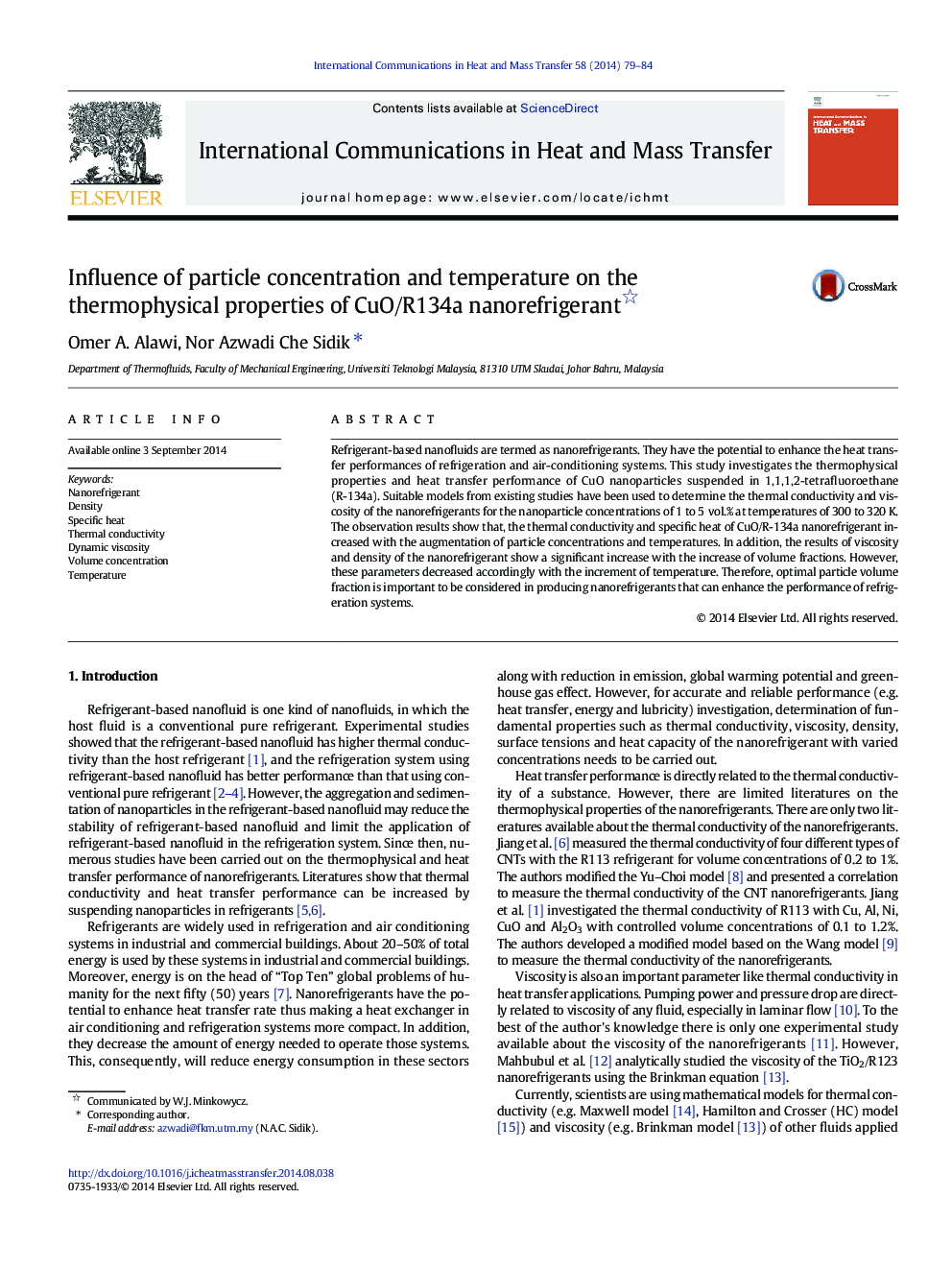| Article ID | Journal | Published Year | Pages | File Type |
|---|---|---|---|---|
| 653282 | International Communications in Heat and Mass Transfer | 2014 | 6 Pages |
Refrigerant-based nanofluids are termed as nanorefrigerants. They have the potential to enhance the heat transfer performances of refrigeration and air-conditioning systems. This study investigates the thermophysical properties and heat transfer performance of CuO nanoparticles suspended in 1,1,1,2-tetrafluoroethane (R-134a). Suitable models from existing studies have been used to determine the thermal conductivity and viscosity of the nanorefrigerants for the nanoparticle concentrations of 1 to 5 vol.% at temperatures of 300 to 320 K. The observation results show that, the thermal conductivity and specific heat of CuO/R-134a nanorefrigerant increased with the augmentation of particle concentrations and temperatures. In addition, the results of viscosity and density of the nanorefrigerant show a significant increase with the increase of volume fractions. However, these parameters decreased accordingly with the increment of temperature. Therefore, optimal particle volume fraction is important to be considered in producing nanorefrigerants that can enhance the performance of refrigeration systems.
